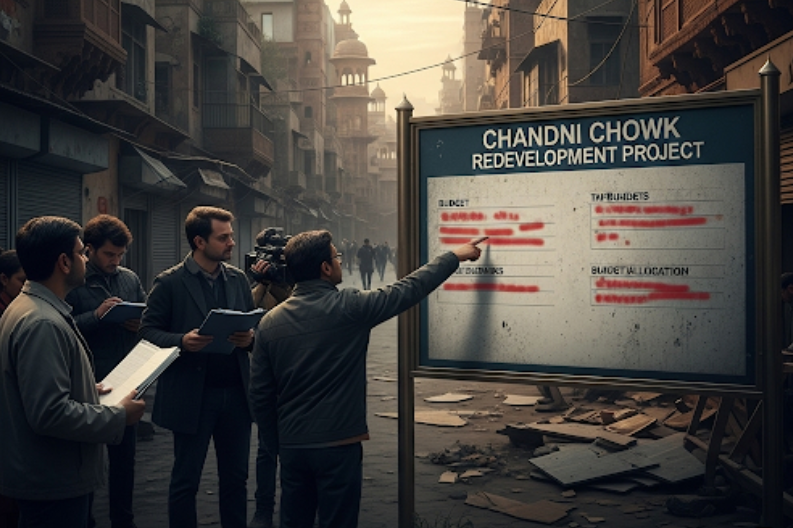The Delhi Government Investigates Issues in the Chandni Chowk Redevelopment Project after internal documents revealed financial troubles and massive cost hikes. Originally estimated at Rs 65.6 crore, the project cost has now escalated to Rs 145 crore. This sharp rise has sparked alarms about fund management and transparency.
Recent reviews highlight that estimates for civil and electrical works have quadrupled. Even though the project overshot its approved budget, the Public Works Department (PWD)continued spending without seeking approval. Consequently, important financial procedures were ignored, leading to suspicions of serious violations.
The PWD, tasked with developing Delhi’s infrastructure, may have crossed financial boundaries by authorizing unapproved spending. Such behavior raises concerns over governance and accountability, particularly in managing public money. Moreover, investigations show that officials diverted a considerable portion of the budget without necessary authorization.
Fiscal mismanagement occurs when officials mishandle funds, and in this project, they allegedly misused money intended for development. As a result, delays are likely, and financial losses may worsen. The impact is especially concerning because the project aims to revive Chandni Chowk, a historical hub popular with tourists and locals alike.
Built in the 17th century during the Mughal era, Chandni Chowk reflects Delhi’s cultural and historical heritage. However, financial missteps risk slowing down its renewal, potentially affecting its charm and importance. With mounting criticism, officials and citizens are now demanding strict accountability and corrective measures.
Good governance is crucial here. It requires transparency, responsibility, and effective problem-solving by public officials. When budgets are unchecked and oversight ignored, trust erodes. Strong financial discipline must guide such large-scale projects to protect both heritage and public money.
The current inquiry underscores the urgent need for reforms. While Chandni Chowk struggles with mismanagement, examples from elsewhere highlight the benefits of proper planning. Chandigarh, designed by architect Le Corbusier and inaugurated in 1952, showcases strong planning and development. Punjab’s literacy rate, at 76.68% in the 2011 Census, reflects these gains. Furthermore, in 2021, Mohali ranked among the top ten cities in India for quality of life according to the Ease of Living Index. These examples demonstrate how thoughtful planning fuels growth and progress.
In conclusion, the Delhi Government Investigates Issues surrounding Chandni Chowk’s redevelopment to restore accountability and safeguard heritage. Addressing mismanagement promptly will not only rebuild trust but also ensure historic areas like Chandni Chowk receive the respect and development they deserve.



